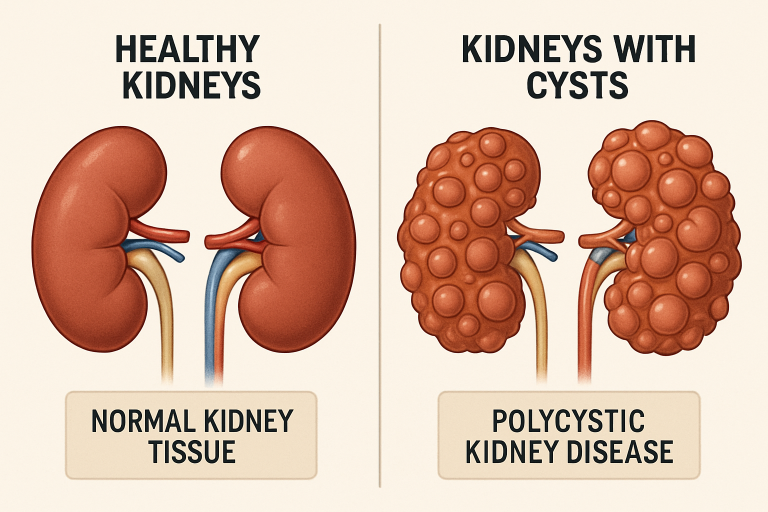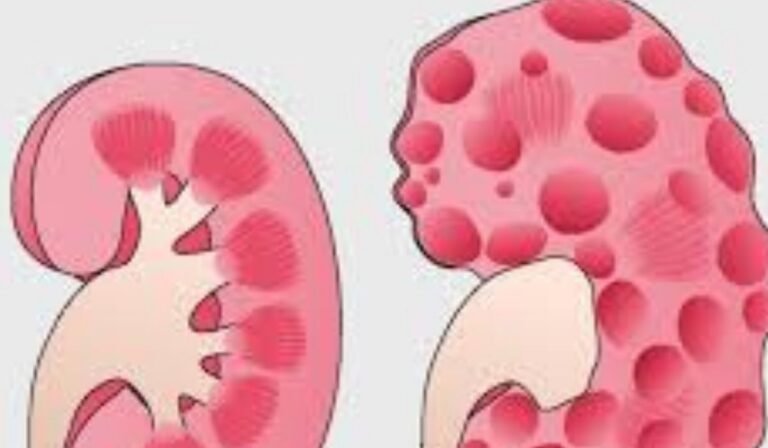Autosomal Dominant Polycystic Kidney Disease (ADPKD) is a lifelong genetic condition that impacts millions around the world. It leads to the gradual development of fluid-filled cysts in the kidneys. As kidney cysts increase in size and number, their effect can compromise kidney function and overall health.
New advances in research and options for participation in Polycystic kidney disease trials are helping to reshape the outlook for those living with ADPKD, offering hope for more effective management and better futures.
While there is not yet a cure for ADPKD, proactive measures—including early diagnosis, regular monitoring, and lifestyle changes—can improve daily life and slow the disease’s progression. Understanding the multiple facets of this condition, from genetics to innovative therapies, empowers individuals to make informed decisions about their long-term health and well-being.
Day-to-day life with ADPKD brings unique challenges. However, with careful guidance from healthcare professionals and emerging therapeutic strategies, individuals can optimize their kidney health and manage symptoms more effectively. Early intervention, coupled with a holistic approach to health, can significantly impact the course of the disease.
Access to credible educational resources and support systems is crucial. By connecting with community organizations and reliable online resources, individuals living with ADPKD can find both emotional support and practical tips for navigating the complexities of the disease.
Understanding ADPKD
ADPKD is the most common inherited kidney disorder, found in about 1 in 400 to 1,000 people worldwide. The disease is caused by mutations in the PKD1 or PKD2 genes, which play a critical role in normal kidney cell development and function. As cysts expand and kidneys enlarge, individuals may begin experiencing symptoms such as high blood pressure, persistent back or side pain, blood in the urine (hematuria), and increased incidence of kidney stones. Disease severity and progression can vary widely, even among family members.
Learning more about the genetic basis of ADPKD, including its inheritance pattern, can be invaluable for families impacted by the condition. Resources like the Mayo Clinic’s overview on polycystic kidney disease provide accessible, expert-reviewed information for those seeking understanding and guidance.

Early Diagnosis and Monitoring
Detecting ADPKD early allows for better control of symptoms and long-term planning. Medical imaging—typically ultrasound, but sometimes MRI or CT scans—remains the gold standard for identifying kidney cysts. These screenings are essential for individuals with a family history or suggestive symptoms, even if kidney function appears normal.
Beyond imaging, genetic testing may be recommended in some instances to confirm the diagnosis or to aid in family planning decisions. Routine monitoring of blood pressure, kidney function (estimated glomerular filtration rate, or eGFR), and urine tests is essential for guiding ongoing care. This proactive monitoring enables healthcare providers to tailor treatment strategies to each individual, reducing the risk of complications over time. The National Institute of Diabetes and Digestive and Kidney Diseases provides in-depth guidance on diagnosing and monitoring ADPKD.
Lifestyle Modifications
Adopting Habits That Support Kidney Health
Simple changes in everyday routines can contribute to slowing the progression of ADPKD and improving quality of life:
- Diet: A sodium-restricted and nutritionally balanced diet helps control blood pressure and prevent fluid retention, both of which are essential for kidney health.
- Hydration: Drinking adequate water may reduce the formation of kidney stones and urinary tract infections, two common complications of ADPKD.
- Exercise: Regular aerobic activity aids in maintaining a healthy weight, strengthens the cardiovascular system, and supports overall well-being.
- Avoiding Smoking: Smoking cessation is strongly advised, as tobacco use can exacerbate kidney function decline and contribute to cardiovascular risks.
Consulting with a renal dietitian or nutritionist can help tailor dietary choices to individual needs and preferences, ensuring optimal kidney and cardiovascular health. support
Medical Treatments
Current and Emerging Therapies
Treatment for ADPKD aims to control symptoms and slow disease progression, even in the absence of a definitive cure:
- Blood Pressure Management: High blood pressure is one of the main contributors to worsening kidney function in ADPKD. Medications such as angiotensin-converting enzyme (ACE) inhibitors or angiotensin receptor blockers (ARBs) are often prescribed as first-line agents.
- Vasopressin Receptor Antagonists: Innovative drug therapies like tolvaptan are now available to specifically target the growth of kidney cysts and slow the decline in kidney function in certain patients. Because of possible side effects, these medications require close physician supervision and ongoing bloodwork.
- Pain Relief: Although kidney pain can be challenging, over-the-counter pain relievers should only be used under professional guidance to avoid additional kidney strain.
Patients may also need to manage related complications, such as urinary tract infections, kidney stones, or chronic pain, with help from a multidisciplinary care team.
Managing Complications
Over time, people with ADPKD may encounter various health issues requiring additional treatment and support:
- End-Stage Kidney Disease: As cysts multiply, some individuals may eventually experience kidney failure, requiring dialysis or kidney transplantation.
- Liver Cysts: Liver cysts are common and are usually benign, but large cysts may sometimes cause discomfort or complications.
- Intracranial Aneurysms: There is an increased risk of brain aneurysms, especially in those with a family history, so specialized screening and monitoring are recommended.
Addressing these challenges early, often in partnership with a nephrologist and other specialists, helps to mitigate risks and preserve quality of life as long as possible.
Support Systems and Resources
Access to reliable information and peer support is essential for individuals and families coping with ADPKD. Patient advocacy groups, such as the American Kidney Fund, offer educational materials, webinars, and peer networks that provide practical guidance and emotional support. These resources can help patients stay up-to-date on the latest treatment options, research findings, and strategies for daily living with ADPKD.
Future Directions in ADPKD Care
Ongoing research into the genetic and molecular underpinnings of ADPKD holds promise for new, more targeted therapies. Investigational drugs and gene-editing tools are in various stages of clinical evaluation, aiming to not just manage the disease but ultimately alter its natural history. Participation in clinical trials and engagement with specialty kidney care centers can accelerate access to innovations in care and new drug therapies.
By staying informed about emerging research and collaborating with medical professionals, individuals affected by ADPKD can make empowered choices and remain hopeful for improvements in managing this challenging condition.
